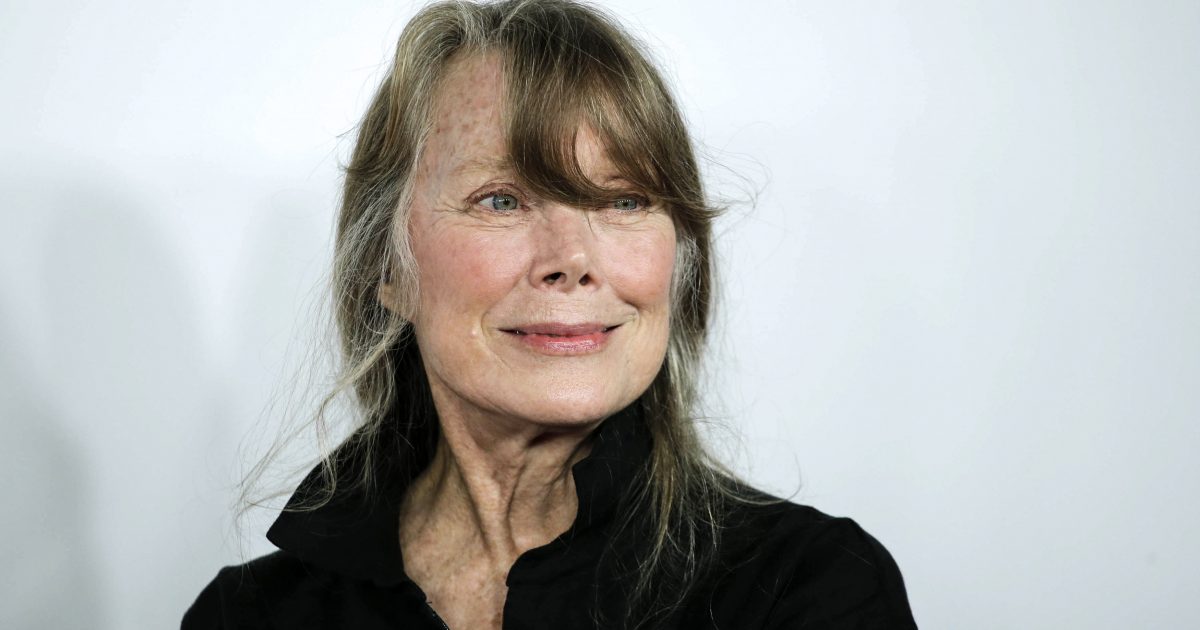Moving Forward after Losing a Loved One to Cancer
- Actress Sissy Spacek, 72, opened up about how her brother’s death from leukemia as a teen inspired her career and still helps her be a better actor to this day.
- Grief is an unavoidable and essential part of the healing process following the loss of a loved one to cancer. It's good to let yourself feel through the emotions of your loss.
- Members of the SurvivorNet community tell us that moving forward after loss does not mean you're necessarily moving on. Things like time, therapy and support groups can also help as you navigate the journey of grief.
- Leukemia is a type of blood cancer. Symptoms vary depending on the type of leukemia, but general symptoms for the disease include: Fever or chills, persistent fatigue, weakness, frequent or severe infections, losing weight without trying, swollen lymph nodes, an enlarged liver or spleen, easy bleeding or bruising, recurrent nosebleeds, tiny red spots in your skin (petechiae), excessive sweating as well as bone pain or tenderness.
Mary Elizabeth Spacek earned her nickname “Sissy” from her two older brothers. One of which, Robbie, died at 18 after a battle with leukemia. She was 17 at the time.
Read More"Well, I was very young and already I had a deep well of experience to use, as I use all things that have happened to me in my life," she said. "I can always depend on [the pain I felt when Robbie died]. So it's like I didn't lose him.
“It's like he shared my career. It's been like rocket fuel. It made me braver."
Spacek, star of the new Amazon series Night Sky, added that his death was “so fresh” when she started her career, but still lingers with her today.
"The irony is that it's still there. It's been just a great… a great gift," she said. "He's very alive in my heart and in my mind. So that's been a real special thing."
Losing a Loved One to Cancer
Grief is an inevitable and essential part of the healing process after losing a loved one to cancer.
There's definitely no one way to cope, but Doug Wendt shared his thoughts on grief in a previous interview with SurvivorNet after losing his wife, Alice, to ovarian cancer.
"We're never gonna move on, I don't even think I want to move on, but I do want to move forward," Wendt said. "That's an important distinction, and I encourage anybody who goes through this journey as a caregiver and then has to face loss, to think very carefully about how to move forward."
Everyone's journey of grief looks different, but therapy and support groups can also be wonderful options to explore. It's also important to keep in mind that time does not heal everything, but it certainly helps.
In an earlier interview with SurvivorNet, Camila Legaspi shared her own advice on grief after her mother died of breast cancer. For her, therapy made all the difference.
"Therapy Saved My Life": After Losing A Loved One, Don't Be Afraid To Ask For Help
"Therapy saved my life," Legaspi said. "I was dealing with some really intense anxiety and depression at that point. It just changed my life, because I was so drained by all the negativity that was going on. Going to a therapist helped me realize that there was still so much out there for me, that I still had my family, that I still had my siblings."
Legaspi also wanted to remind people that even though it can be an incredibly difficult experience to process, things will get better.
"When you lose someone, it's really, really, really hard," Legaspi said. "I'm so happy that I talked to my therapist. Keep your chin up, and it's going to be OK. No matter what happens, it's going to be OK."
Understanding Leukemia
Leukemia is a blood cancer that develops when the body produces large quantities of abnormal white blood cells. These cells prevent the bone marrow from producing any other type of cell including red blood cells and platelets.
"One cell got really selfish and decided that it needed to take up all the resources of everybody else, and, in doing so, took up space and energy from the rest of the body," Dr. Nina Shah, a hematologist at University of California San Francisco, explained.
What Is a Blood Cancer? How Is It Different?
In a more general sense, blood cancer means that your bone marrow is not functioning properly.
"And when your bone marrow doesn't function correctly, it means that you can have something happen to you like anemia," she said. "Or you can have low platelets, which makes it possible for you to bleed easily. Or your immune system is not functioning correctly."
Symptoms of leukemia can vary depending on the type of leukemia. Common signs and symptoms of the disease include:
- Fever or chills
- Persistent fatigue, weakness
- Frequent or severe infections
- Losing weight without trying
- Swollen lymph nodes, enlarged liver or spleen
- Easy bleeding or bruising
- Recurrent nosebleeds
- Tiny red spots in your skin (petechiae)
- Excessive sweating, especially at night
- Bone pain or tenderness
These signs and symptoms are not exclusive to leukemia, but if you notice them or any other changes to your health you should see your doctor promptly.
Learn more about SurvivorNet's rigorous medical review process.

